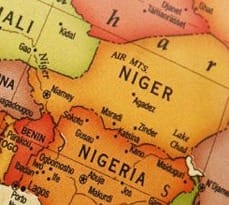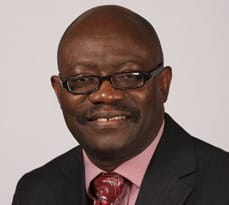Recent graduates include the Honourable Commissioner for Economic Planning & Budgeting in Delta State, Nigeria, and a senior project manager at Project and Building Consultancy, London

Among the recent graduates of Cambridge Judge Business School’s Executive MBA (EMBA) programme is Kenneth Okpara, a Nigerian national. Formerly a financial management specialist at the World Bank, he was appointed Honourable Commissioner for Economic Planning and Budgeting in Delta State, Nigeria in 2011.

He believes that the qualification made him a stronger candidate for the role. “The governor of my state in Nigeria reached out to recruit me to work with him,” he says. “And he knew in considering me that I had completed the EMBA course at Cambridge.”
As Commissioner, Okpara has economic and budgetary responsibility for a state of more than four million people. He has found that skills and knowledge gained on the Executive MBA have proved invaluable in helping him to execute policy innovations.
“A year on, the changes I’ve made in terms of good governance and economic development are fully implemented, and they’re working,” he says. “For this, the management and strategy classes on the EMBA have been very useful. And the soft skills I gained at Cambridge – leadership, emotional intelligence and handling difficult conversations – have helped me to change perceptions and mindsets.
A year on, the changes I’ve made in terms of good governance and economic development are fully implemented, and they’re working.”
“The Group Consulting Project on the EMBA, too, was important. We had to work together towards a common goal, and one of the things I took away from it was how to plan the allocation of tasks and division of responsibilities while avoiding clashes or duplication of roles. A lot of this happens in government.”

A current student on the EMBA programme is Eddie Elcomb, a senior project manager at Project and Building Consultancy originally from the Democratic Republic of the Congo. “I would love to take the expertise I’ve gained back to Africa,” he says. “It’s something that is always in my mind. It’s now about finding the right opportunity, where I can solve a real problem and do something that has an impact on a lot of people.”
Elcomb, who graduated from London South Bank University in 1997 with his year’s top first-class degree in Civil Engineering, believes that the EMBA has equipped him with vital tools for future business success. “A couple of years ago, I could only count on my technical background. Though I had run a small business, I felt limited in terms of my understanding of the business environment.
Though I had run a small business, I felt limited in terms of my understanding of the business environment.
“Since I was thinking of developing business in Africa, I wanted to gain an understanding of the commercial world, of marketing, accounting, corporate finance, strategy and innovation. Now, having gone through the Cambridge programme, I feel confident and well equipped with the skills to go back if the right opportunity arrived.”
And both men feel that there are advantages to the Cambridge EMBA that go well beyond the curriculum content. “It’s not just about the knowledge you gain – it’s the experience, the people you meet and the leverage of the Cambridge brand name, which people respect,” says Kenneth Okpara. “In Africa, as all over the world, Cambridge means quality and prestige.”
Notes
- Statistics from the Graduate Management Admission Council (GMAC) suggest the United Kingdom is the third most popular destination (behind the USA and Canada) for African citizens aspiring to enrol on an MBA, with 1,283 GMAT source reports sent to the UK.
- The top three reasons for African citizens choosing a graduate management programme in the UK were (1) the reputation of the education system; (2) improved chances of having an international career; and (3) to study in a country that offers English-language tuition. Among graduating students in business schools, 22 per cent of African citizens had plans to return to their country of citizenship to work, after a period working abroad.
- The Cambridge Executive MBA is a stimulating and practical 20-month programme offered by Cambridge Judge Business School, and is designed for senior managers who want to continue working while earning a Cambridge MBA degree. It builds on the strengths of the acclaimed full-time MBA programme, and offers rigorous general management training with a range of customisable elements.

